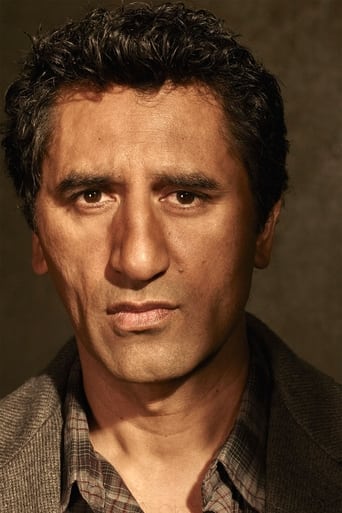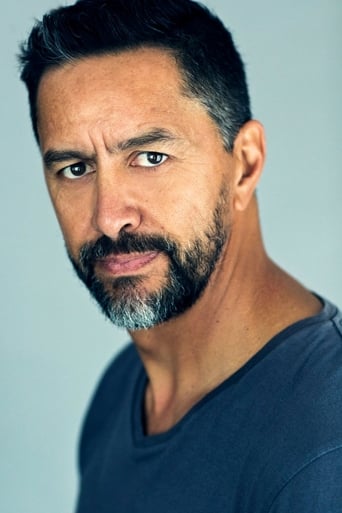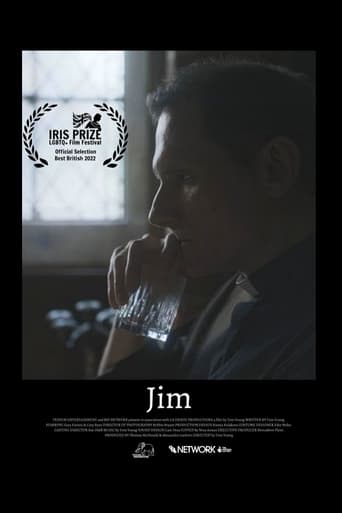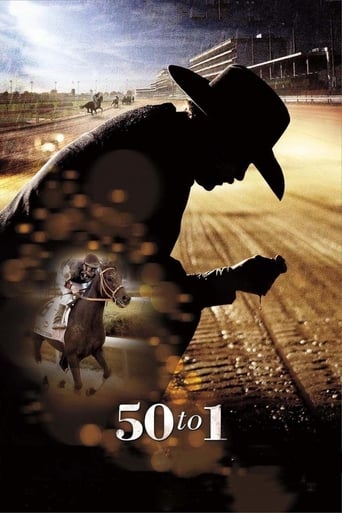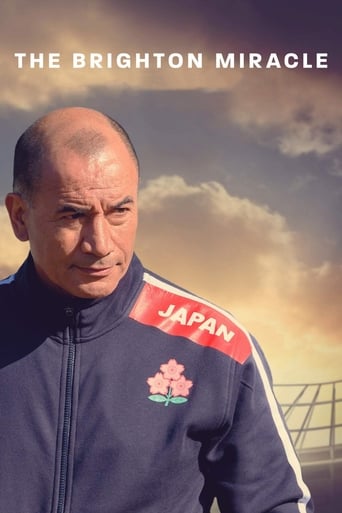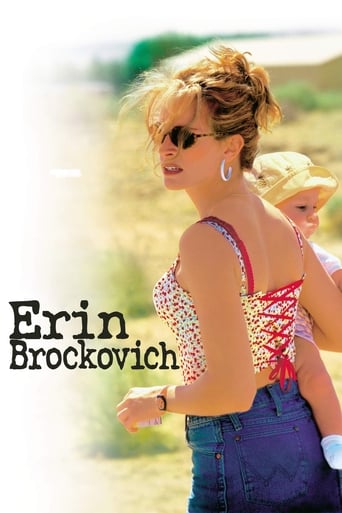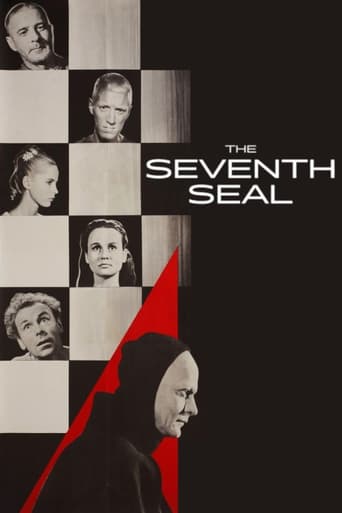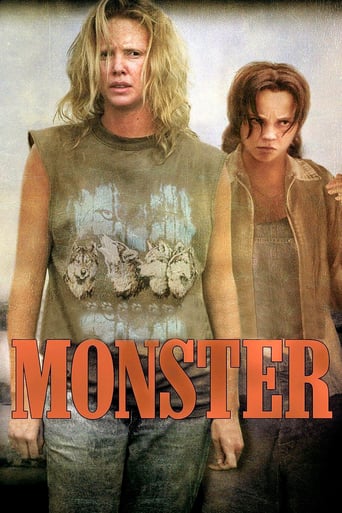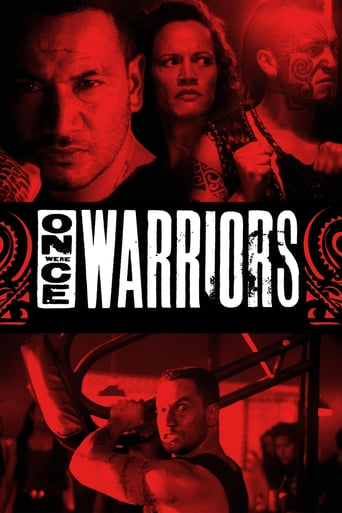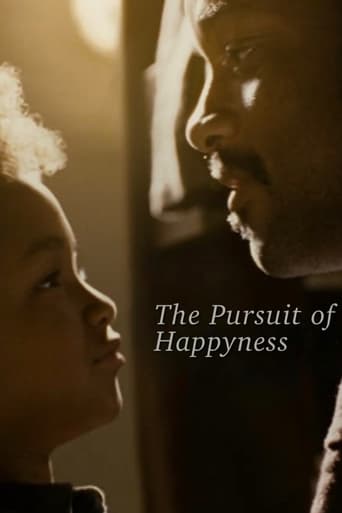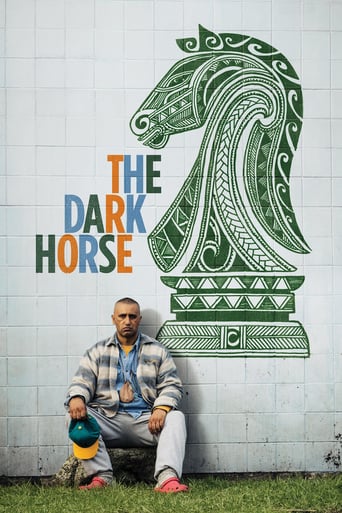
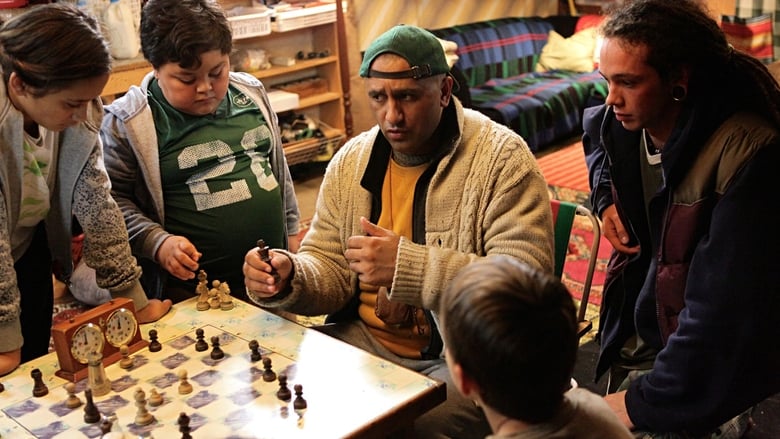
The Dark Horse (2014)
One-time Maori speed-chess champ, Genesis Potini, lives with a bi-polar disorder and must overcome prejudice and violence in the battle to save his struggling chess club, his family and ultimately, himself.
Watch Trailer
Cast


Similar titles
Reviews
We first encounter him wandering the streets as if he was a toddler discovering the outside world for the first time. He soaks in the rain. Feels the ground beneath his feet. And then he finds himself more or less back where he most fully feels at home: in front of a chess board. He used to be The Dark Horse, rolling through opponents with a speed matched only by the trash-talking that came from his mouth. Now he is a shell of that former player, his mind having betrayed him. Cliff Curtis plays Genesis Potini in the best performance of his career, after doing the rounds in Hollywood and establishing himself as a capable character actor. But he has never so completely transformed into another person like this. What strikes us initially is how he has physically grown into the role, no longer the wiry punk that he usually portrays (a stick next to the hulking beasts in Once Were Warriors). Curtis doesn't merely wear Potini's real-life poncho, he lives inside its faded folds. He has the shaved, misshapen head, the rotten teeth, and most vitally, the tired eyes that never quite disappear even when he is playing the game he loves. His mental illness is always at bay, ready to rear its ugly head - Curtis fills the troubled role with ticks and fidgets and back-of-the-mind mutterings, and in his place another actor might have overplayed their hand, going the route of external flashiness. But Curtis imbues Potini with such trembling, nervous energy that we are amazed he hasn't yet dropped dead from exhaustion and weariness. We see how he channels it through his passion for chess, and how crestfallen he is when his bipolar disorder lets him down at a crucial moment. Observe how these ticks work in the opening scene, where Curtis caresses and greets chess pieces in a dusty pawn shop as if they were old friends, whispering in their ears like his illness does to himself. There is no high and low in Potini's mental struggle, but a constant uphill battle that might be momentarily eased by a simple game. Away from the chess board, James Napier Robertson wields the soundtrack like an assault on Potini's mind, layered with incessant voices, initially the thousands of commands and medical orders from the numerous doctors he has been treated by, and then finally his own demons taunting him for his personal failures. Retreating within, he mindlessly mumbles coping mechanisms and strategies borne out of a weary existence. The script offers him tiny, brief windows of lucidity where our hearts break for the man crumbling inside; a teary plea to his older brother, a desperate appeal to a teenage about to be led astray. Like the great New Zealand film by Lee Tamahori, The Dark Horse offers another sobering insight into the lives of a disenfranchised Maori community, filmed in dejected sections of Gisborne where boys are expected to become criminals. The film doesn't seek to pull punches - there are times where we might be inclined to bitterly agree with Ariki as he lays out how the world has forgotten about them, and how a silly little kid's game will do nothing to help them. At times the film might lean towards that foolish naivety, as it builds towards that expected resolution of the underdog triumphing in impossible circumstances. But to watch Potini play chess is to witness a broken, addled mind suddenly whir to life, and we can see how this silly little kid's game has held him through many tough periods. Ultimately The Dark Horse isn't totally about Mana and the rest of the Maori youth succeeding beyond their situation. Criticisms aimed at the formulaic competition miss the point - win or lose, each of these kids have a long battle ahead of them, and this was merely a waypoint towards a long-term goal. Chess, as Potini outlines, is one way of uncovering their cultural pride and identity; the queen as the Earth Mother, the king as Maui, leader of his people. But every piece is a warrior in their own right, and whether you're a pawn or a king or a queen or a bishop, everyone is welcome to play on Genesis Potini's board. What we eventually realise is that while chess was his way of saving these kids, it was also the key to saving himself.
I just had the chance to watch this movie at the Shanghai International Film Festival and I went in without knowing what I was getting into as the tickets were purchased for me and I was just tagging along.Well, it could not have gone better. As a German, I only have a vague knowledge about the social problems that New Zealand is facing but that didn't matter at all. The acting was outstanding to the extend that Cliff Curtis will be on my radar from now on. The movie was beautifully shot and felt very close to reality.The story, which is biographical, brought tears to my eyes.It revolves around an emotionally unstable Maori named Genesis who has spent a significant part of his life in a mental hospital and who happens to be somewhat of a chess genius. Genesis is granted the chance to leave the mental hospital under the condition that a family member will take care of him. His brother, who leads a vicious gang out in the New Zealand country site, as his last resort is more or less up for the duty and agrees to take him in. What Genesis lacks in social skill he makes up for with enthusiasm. Focused on staying positive to prevent another relapse, which would surely mean the end of his freedom, he joins a local chess club for troubled children and young adults. Genesis quickly breathes life into the club with his addictive enthusiasm and by being the living proof that you don't need a college degree to be smart.His character mesmerized me because he was simply modest, honest and wholehearted in an environment where people with these qualities don't really thrive. All and all, a truly memorable experience, even if you are not very familiar with the culture in New Zealand!
Behind the beautiful cinematography, engaging and detailed performances, and deftly-paced editing is a master work of a screenplay. A wholly empathetic protagonist, with his wellbeing so delicately balanced, bombarded by obstacles. The stakes continue to rise, the subplots interweave seamlessly, with the whole story building to a perfectly weighted, moving, climax. Once filmmakers could be just "good" or "interesting" and pull a crowd to the cinema to see their kitchen-sink dramas. The new Golden Age of television has put paid to that. We get great storytelling and interesting ideas pushing boundaries all the time, delivered on-call to our living rooms. if filmmakers are not making blockbusters, or special effect laden sensual experiences, then the stories must be wonderful and totally captivating to get a crowd in the car and front up with the ticket price. There's no place to hide...This film is a great reminder of why there is still a place at the cinema for a low budget, domestic drama, they just need to be this good!
This movie is the story of a man, Gen who suffered from bipolar disease and he tried to live his life as a normal person. Gen had a nephew who was living with a gangster father that badly affected him. Gen himself loved playing chess and having a big desire to live a positive life, he proposed local teenagers to participate in a chess competition, encouraging his nephew to play as well. The main role of Gen was played by Cliff Curtis. He was trying to overcome his "disease" by helping guys to teach playing chess. He had a responsibility; he looked after himself and his nephew. He had a big desire to win chess competition. The play of the actor was very well and I believed that Cliff was a patient in reality. To summarize, the movie has impacted on my feelings by showing Gen's love to the nephew and how he lead all guys in the team to a victory. Now, I see that the bipolar disease is not so bad, because it depends on person. As for Gen, he wanted to be the man that would bring benefits to a society by teaching children playing chess. -The Bright Horse-


